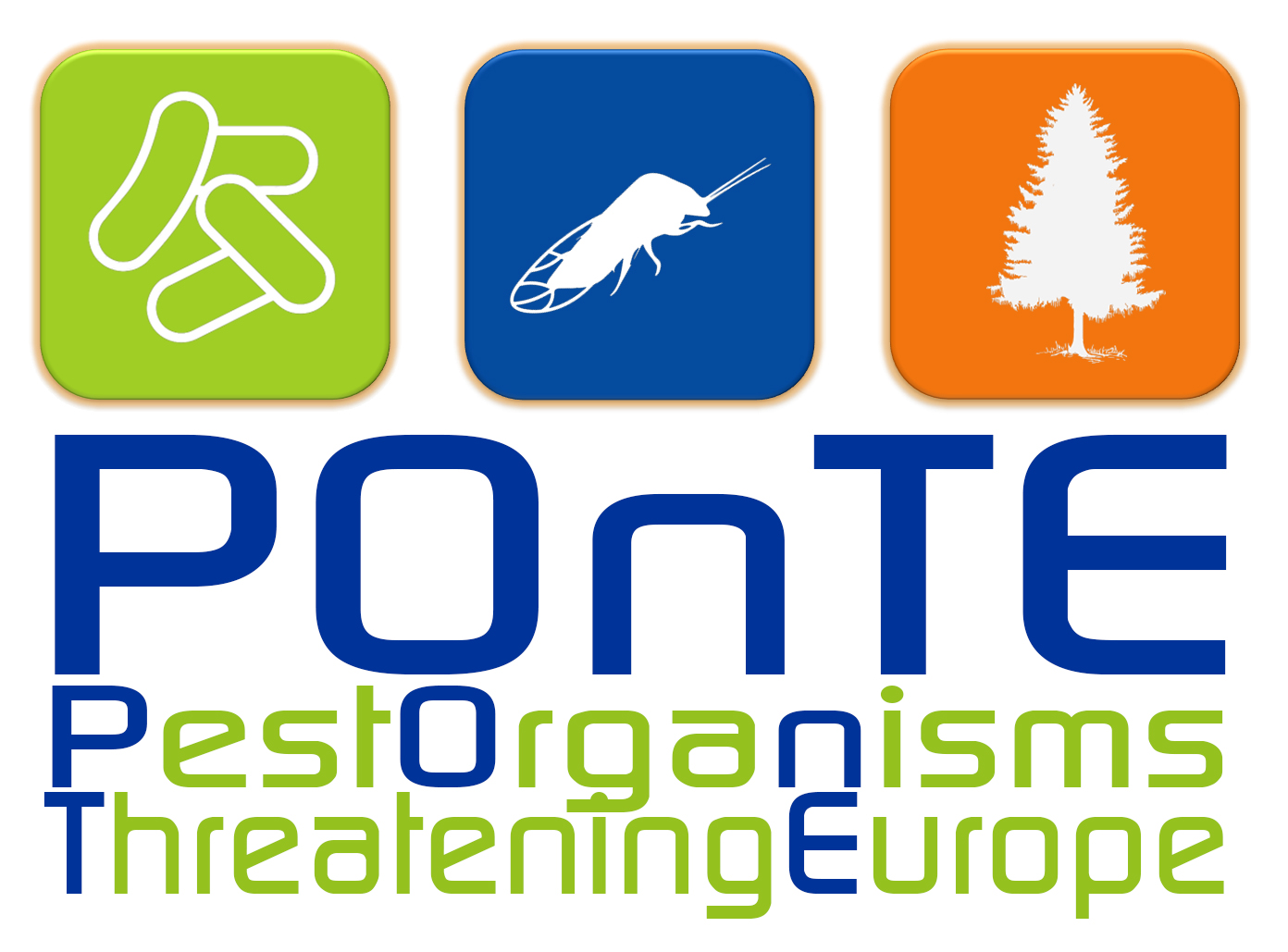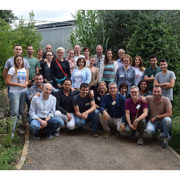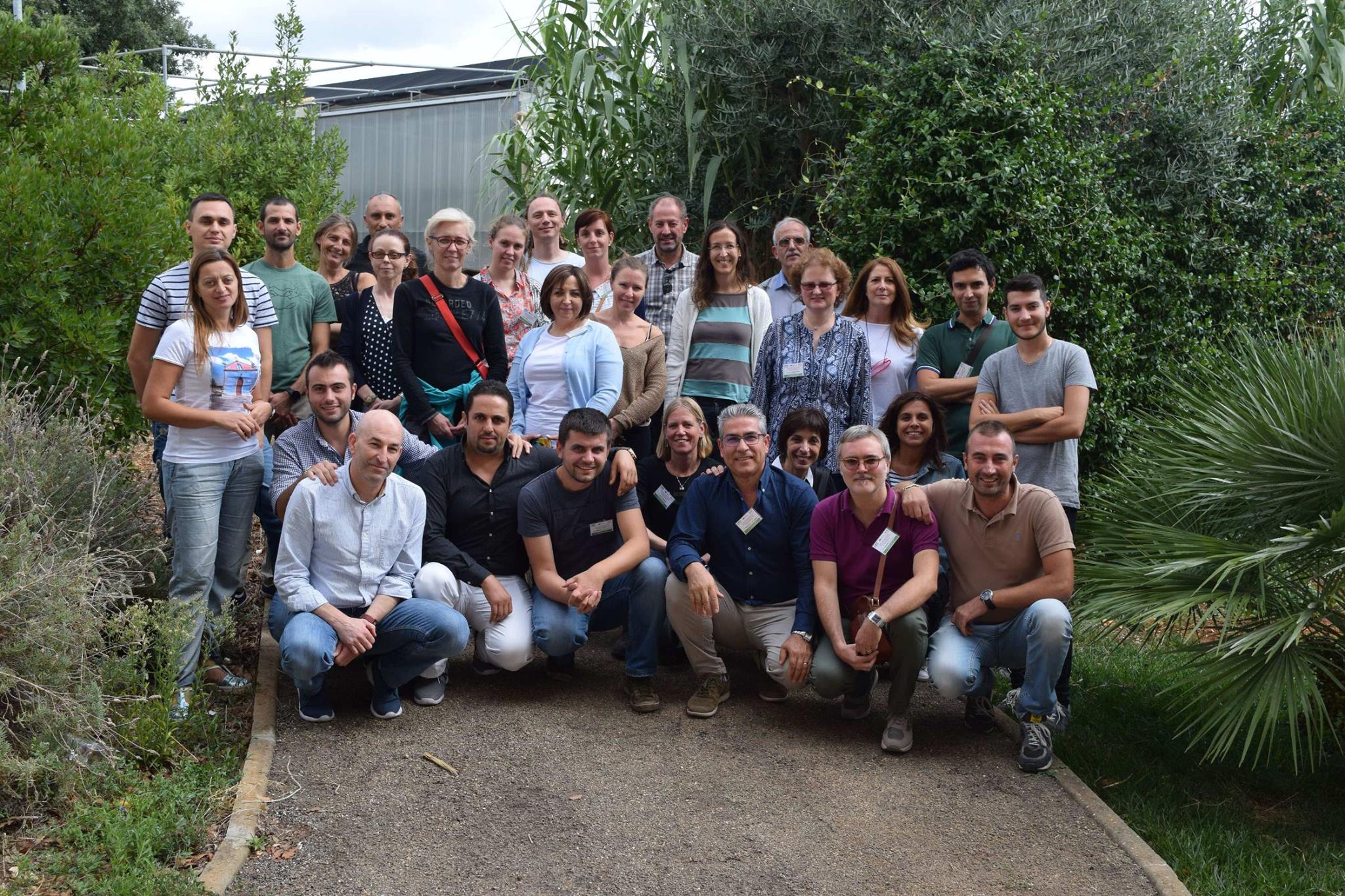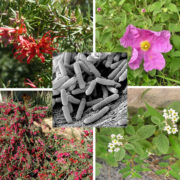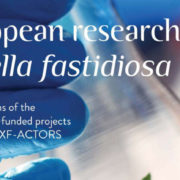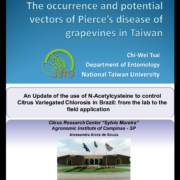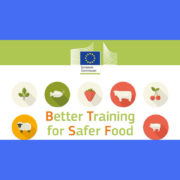Achievements of the successful training workshop on sampling and diagnosis of Xylella held in Locorotondo
A technical workshop on ‘Sampling and diagnostic tools for Xylella fastidiosa”, jointly organized by the POnTE and XF-ACTORS projects, was held in Locorotondo (Bari), Italy, from 19 to 22 September 2017.
The training event hosted 19 international participants for a 3-day laboratory session and a 1-day field session program.
With the objective of building capacity in the early detection of Xylella fastidiosa worldwide, the participants, experienced phytosanitary laboratory operators from 8 EU and 10 non-EU countries, were trained to:
- overcome technical limitations of sample preparation and detection methods
- improve the diagnostic protocol performances
- critically review the analytical outcomes.
The unique experience of visiting the largest European region infected by Xylella fastidiosa as well as the ongoing experimental trials on olive trees provided the participants with a sound background to develop strategies for solving the Xylella fastidiosa threat.
The 19 participants were tutored in the laboratory by a team of 15 experienced tutors and laboratory assistants, belonging to the scientific organizer bodies: CNR-IPSP, Bari, Italy; DiSSPA-University of Bari, Italy; CIHEAM-IAMB, Valenzano, Italy; and CRSFA Basile Caramia, Locorotondo, Italy.
Scientific information material, consisting of a comprehensive manual of laboratory protocols and the report of the experimental field trials, was prepared under the coordination of Dr. Giuliana Loconsole (DiSSPA-UNIBA) and Dr. Donato Boscia (CNR-IPSP) and finalized by the contribution of Dr. Maria Saponari (CNR-IPSP), Dr. Oriana Potere (DiSSPA-UNIBA), Dr. Khaled Djelouah and Dr. Taher Yaseen (CIHEAM-IAMB).
On the opening day, Dr. Donato Boscia (CNR-IPSP), Coordinator of the POnTE Project, introduced the Xylella fastidiosa current situation in Europe to the audience ; Dr. Giuliana Loconsole (DiSSPA-UNIBA) described the whole laboratory sessions program, followed by the in-depth introduction of the LAMP method, provided by Dr. Taher Yaseen (CIHEAM-IAMB).
Dr. Maria Saponari assisted by Dr. Giusy D’Attoma and Dr. Giuseppe Altamura (CNR-IPSP) led the session on Xylella fastidiosa isolation and cultivation; Dr. Oriana Potere (DiSSPA-UNIBA), and Dr. Khaled Djelouah (CIHEAM-IAMB) conducted the demonstrations of the serological methods (ELISA and DTBIA), with the collaboration of Dr. Francesco Palmisano, Dr. Nicola Trisciuzzi, Dr. Paola Pollastro and Dr. Donato Lorusso (CRSFA). Significant efforts were put in the demonstration of the molecular methods and sample preparations: Dr. Giuliana Loconsole and Dr. Taher Yaseen led the activities, assisted by their colleagues Dr. Massimiliano Morelli, Dr. Danilo Tavano, Dr. Raied Abou Kubaa (CNR-IPSP) and Dr. Maria Rosaria Silletti (CRSFA).
The closing laboratory session and discussion of the results were conducted by Dr. Giuliana Loconsole. Participant comments and final questions were effectively addressed by all the tutors.
The field session was guided by Dr. Donato Boscia (CNR-IPSP) and Dr. Franco Valentini (CHIEAM-IAMB), who described the 4-year development of the Xylella fastidiosa outbreak in Apulia, and introduced the participants to the ongoing experimental trials to study the Xylella fastidiosa resistances in 270 olive tree cultivars collected all around the world.
The vector sampling was demonstrated by the entomologist, Dr. Vincenzo Cavalieri (CNR-IPSP), while the officials of the regional quarantine and monitoring agency described the procedures used for monitoring Xylella fastidiosa in the Apulia buffer zone.
The high relevance of the social and economic damages caused by the Xylella fastidiosa outbreak in Apulia was explained by Dr. Federico Manni (Cooperative Acli Racale), stakeholder partner of the POnTE project and supporter of the field day.
The participant logistics, meals, and general coordination of the Workshop were managed by Lilia Formica (Agritest srl, Valenzano, Italy) together with the kind collaboration of Maria Grazia Piepoli (CRSFA), and supported by the Agritest POnTE Project funding.
